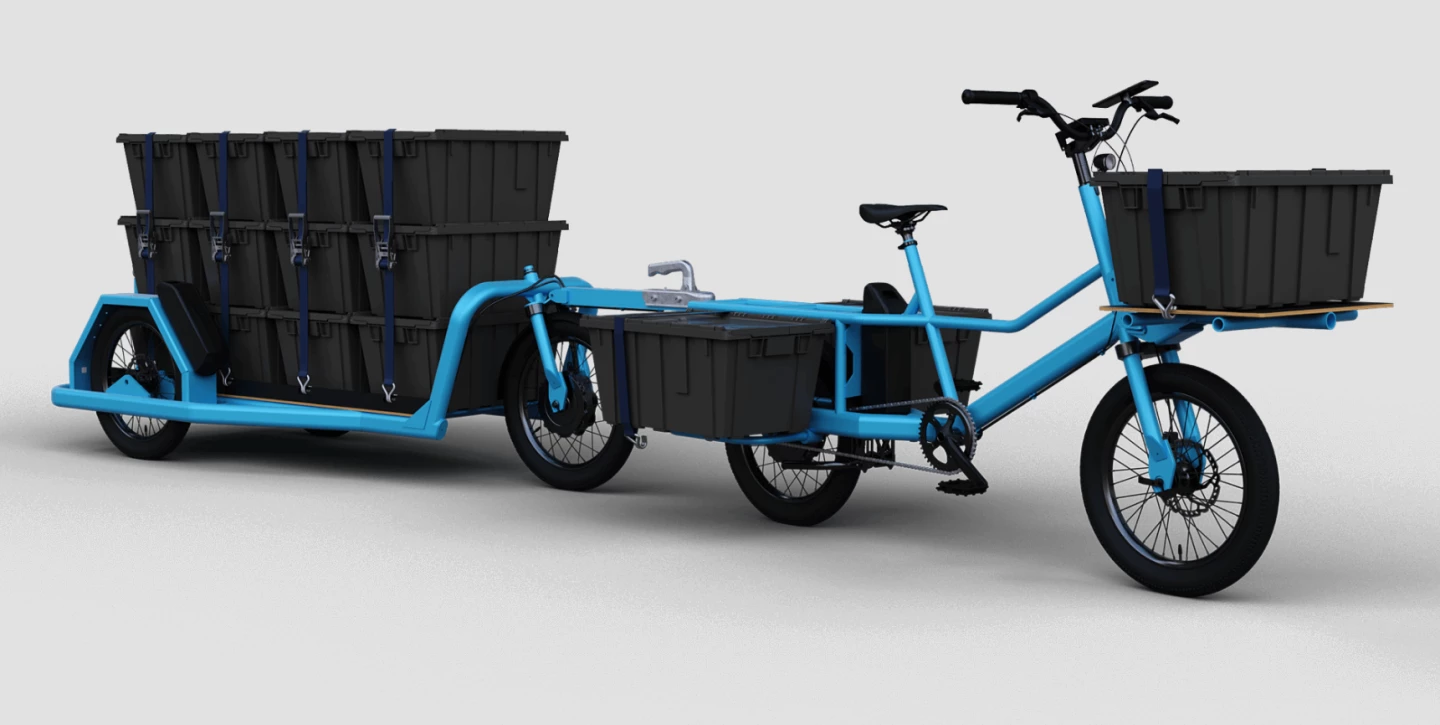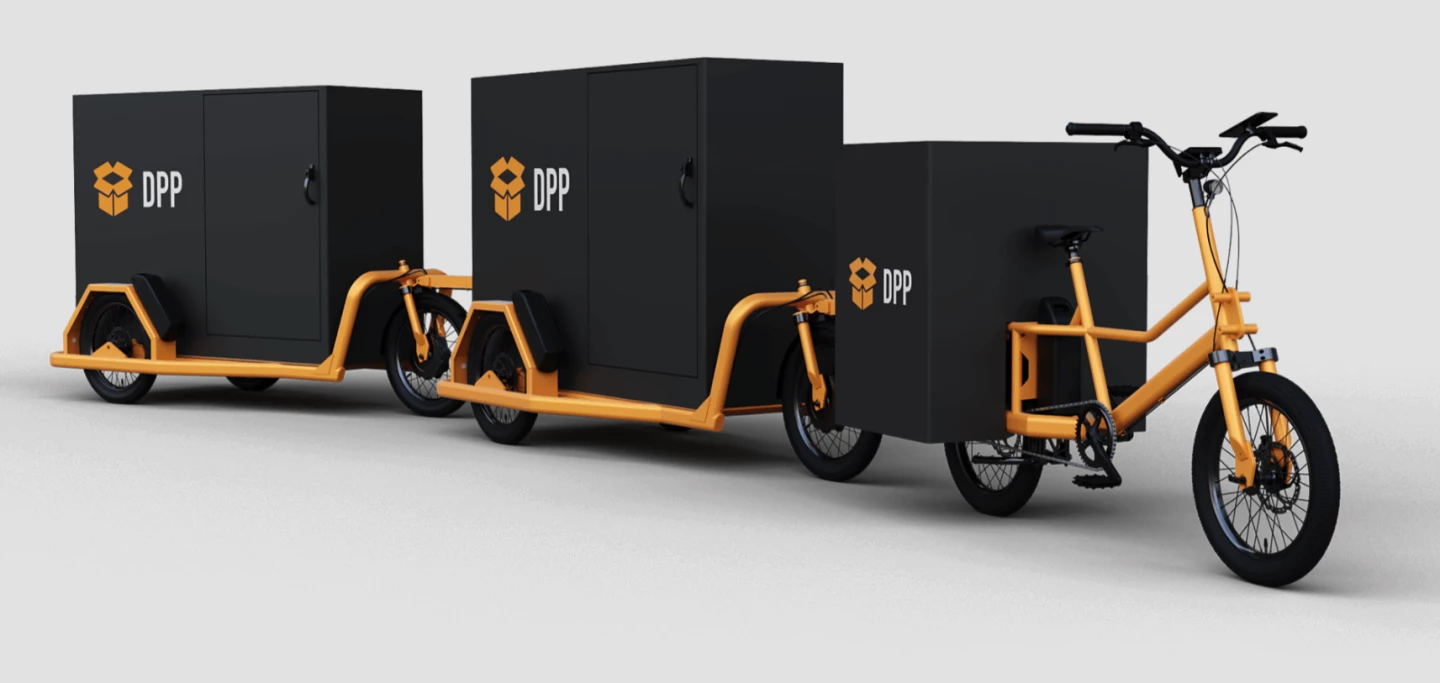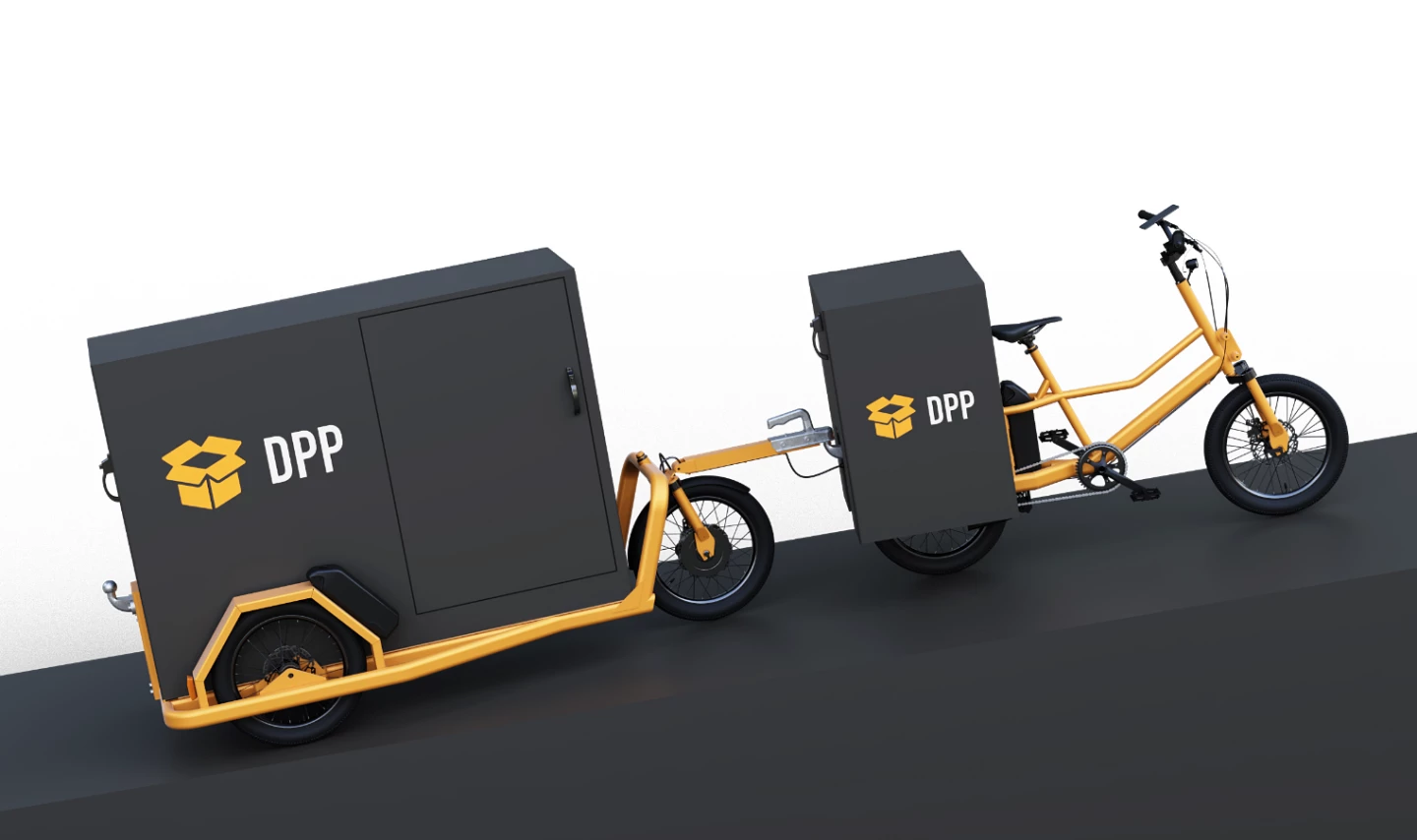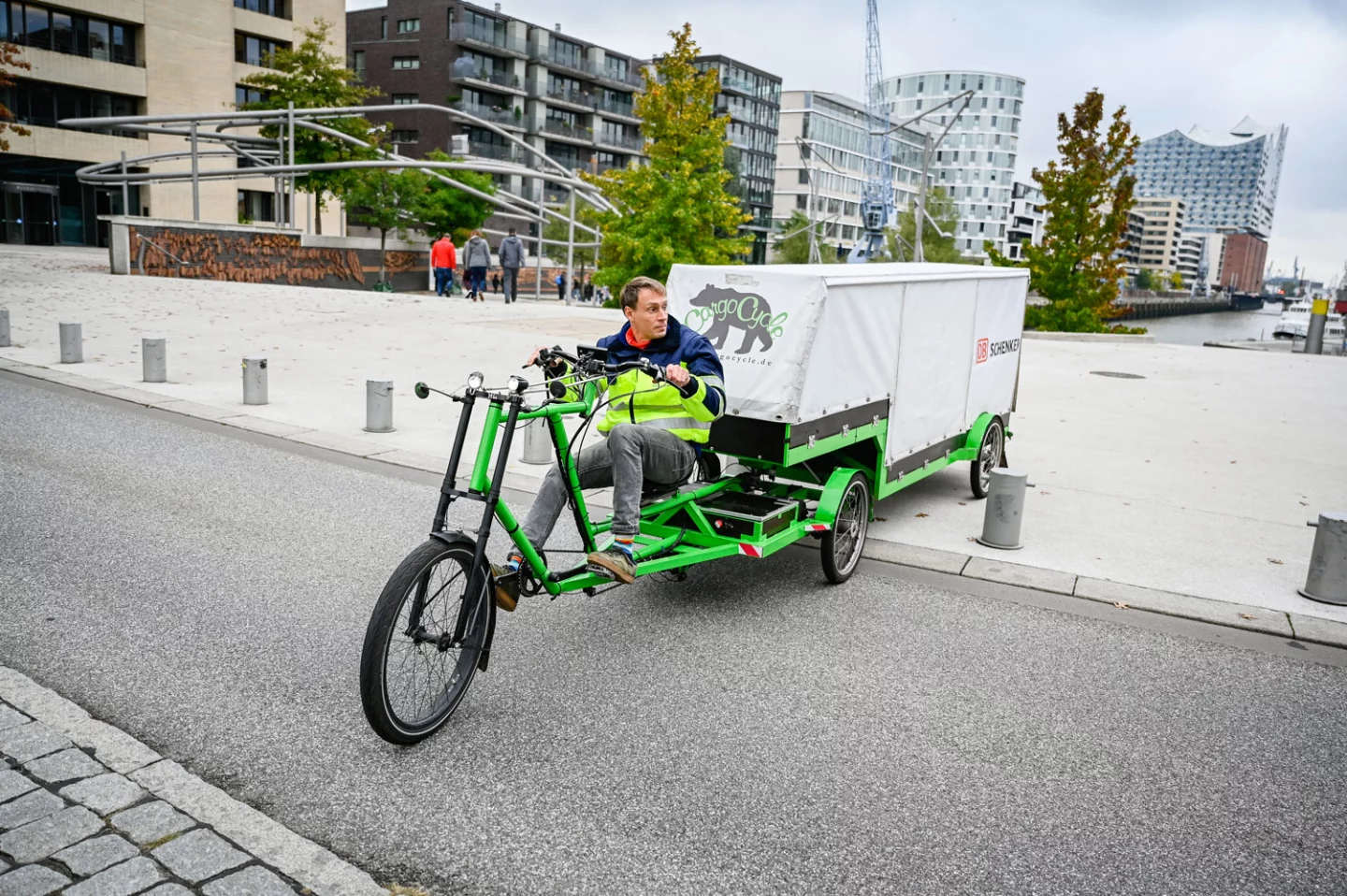It's been a good month for French ebike innovations. At the same time the supercap-boosted battery-free Pi-Pop has been motoring its way through headlines, the Pelican eTrain has been earning itself some attention of its own. And that attention is well-deserved, as this modular monster is unlike any other cargo bike system we've seen, combining a capable electric cargo bike with one or two powered trailers to carry up to 1,100 lb (500 kg) and/or 3,000 liters of cargo. It shoulders loads around the city like a small cargo van or pack of mules.
The aluminum-framed Pelican ebike that serves as the engine of its very own freight eTrain is a solid enough bike but not quite as capable a cargo-hauler as something like the Ouca or Trek Fetch+. Its boxed rear frame supports a level rack over top the 20-in rear wheel and two lower racks on the sides of that wheel. The bike also has mounting bolts for a front rack on its tall headset. Pelican lists its capacity at up to 300 liters or 220 lb (100 kg) – not bad, but we know a number of ebikes that are built to carry double that weight.

Those other ebikes do not come with the option of multiplying their volume capacity tenfold or weight-hauling capability fivefold, however. Using Pelican's hitch system, the eTrain bike can do just that, starting things off by towing a large trailer capable of carrying up to 440 lb (200 kg) and/or 1,500 liters of cargo. The trailer features its own e-drive, and Pelican's proprietary control system synchronizes acceleration and braking so that the two vessels move like one unit. Both the bike and trailer motor max out at 111 Nm (82 lb-ft) of torque, providing the pure grunt needed to move industrial-grade loads.
But Pelican doesn't stop there. The eTrain can attach a second self-powered trailer to add another 440 lb and 1,500 liters worth of cargo-hauling capability for a total possible load of 1,100 lb (500 kg) or 3,000 liters, whichever comes first.

To put that in perspective, a short-wheelbase Ford Transit Connect carries 2,900 liters in its load area, while a Volkswagen Caddy SWB cargo van has a cargo volume of 3,100 liters. So the Pelican eTrain carries roughly a small van's worth of cargo around the city while providing a greener solution that gives the rider some exercise along the way. Since the trailers essentially power their own weight, they don't hold the rider back, allowing them to pedal as comfortably as on the cargo bike alone – or at least that's how the system is designed to work, we'd hate to be on the business end of a snafu anywhere near a hill.

Speaking of hills, Pelican says that the bike and a single trailer can handle 18% grades with a full load in tow. The bike and trailers have individual battery packs for a modest 31 miles (50 km) of range under full load. Pelican says that an emergency brake automatically kicks on to immobilize the trailer should it break loose from the bike.
The eTrain surpasses a similar cargo ebike/e-trailer setup we've looked at, the 700-lb-rated (318-kg) Tern/Carla Cargo duo, but it does fall short of at least one ebike/trailer combo we've come across in the past. The Nanuk Megaliner from Germany's Cargo Cycle looks like the pure embodiment of an "ebike tractor-trailer," and while it has the same 1,100-lb (500-kg) payload as the eTrain, the massive Megaliner box trailer can swallow a full 4,000 liters of cargo.

Cargo Cycle's Nanuk "tractor" can be decoupled from the Megaliner trailer, serving as a capable e-cargo trike on its own with capacity for up to 440 lb (200 kg) and/or 1,600 liters. By comparison, the eTrain system has more modularity, going from a compact, regularly sized electric cargo bike to a long double-trailer train.
Pelican offers the eTrain for both sale and rental. The latter is good news if you might have a single use for such a contraption – perhaps moving from one apartment to another without a traditional motor vehicle – but don't have the space, money or desire to own one. Retail pricing starts at €4,500 (approx. US$4,900), while rentals start at €15 per day or €45 per month.
Source: Pelican















